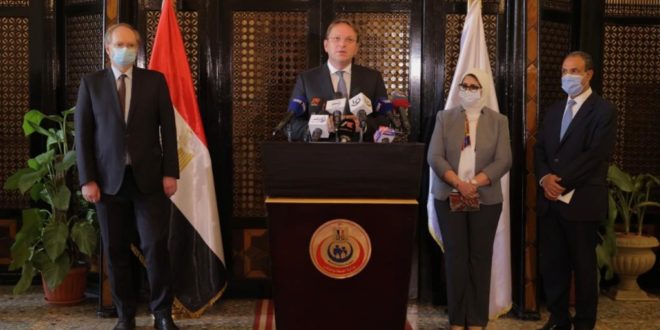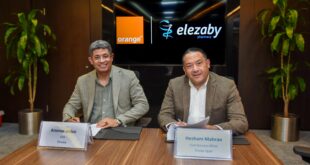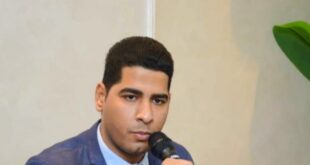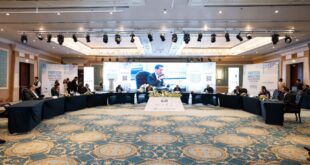Cairo, 24 October 2021
Distinguished guests, ladies and gentlemen,
I am honoured to address you today at the Cairo Water Week, one of the biggest water-related gathering not only in Egypt, but in the Mediterranean as well as in Africa. It is my pleasure that from its very conception and now for the fourth year in a row, the European Union is a strategic partner to the Egyptian authorities in organising this prestigious event. Our contribution to the Cairo Water Week stems from our firm commitment to Egypt’s sustainable development and in particular its water sector.
The year’s theme “Water, Population and Global Changes: Challenges and Opportunities” could not be more timely. Faced with the urgency of the climate change, many regions in the world are confronted with more frequent, severe, and long lasting extreme weather events, water cycle and temperature changes. This often leads to severe water scarcity which can have destabilising effects on countries and regions, and result in increasing inequalities and instability.
Water is a prerequisite for human life and dignity. It is a basic human right. Access to clean drinking water and sanitation are essential for the realisation of all human rights. It is fundamental for the resilience of societies, economies and of course the environment. This is especially true in Egypt where rapid population growth alone will place increasing strains on water availability.

Water is a sector in which the European Union has been the most active for well over a decade. We have provided support to help improve the quality of life for Egyptian people, by expanding water and wastewater coverage and enhancing the quality of water resources. We have been working jointly with the Egyptian institutions throughout the water cycle.
Our partnership covers the strategic, practical and financial perspectives.
At strategic level, we have been assisting with the planning of water management through support to the preparation of the National Water Resources Strategy for Egypt 2017-2050 as well as the National Rural Sanitation Programme.
In practical terms, we have carried out several projects helping the Egyptian population on the ground. Just to name a few: *the rehabilitation of the Kitchener Drain in the Delta region, a novel project that helps the depollution of the drain, or *multiple phases of the National Drainage Programme and Waste Water Treatment Programmes in Kafr El Sheikh, Alexandria and Lake Qarun. This has helped over 3 million people in Gharbia, Sharkia, Damietta, and Beheira gain access to water and sanitation. And now, a new phase of the programme is increasing the coverage to the governorates of Qena, Sohag, Assuit, Minya.
Since 2007, the European Union provided to Egypt in response to water challenges more than €550 million in grants, leveraging funds of nearly €3 billion in the sector. Our existing programmes funded together with European Financing Institutions extend to over 16 Egyptian Governorates, provide nearly 20,000 permanent jobs and 600,000 short term job opportunities, mainly in rural areas. They will help to improve the quality of life for nearly 18.5 million people in Egypt by 2024, almost 20% of the population of the country.
But there is more to come. This spring, the European Union offered a New Agenda for the Mediterranean. This Agenda is based on the conviction that by working together and in a spirit of partnership, common challenges can be turned into opportunities, in the mutual interest of the EU and its Southern neighbours, and in particular of Egypt.

The new Agenda includes a dedicated Economic and Investment Plan to stimulate a long-term socio-economic development and recovery in the Southern Neighbourhood. From the EU budget, we aim to allocate up to €7 billion for the roll-out of this Investment Plan during the coming 7 years. This is expected to mobilise up to €30 billion in private and public investment in the region during the next decade. For Egypt, the EU contribution could represent up to €1 billion between now and 2027, mobilising nearly €9 billion of additional investments in the country.
Water is among the top priorities in this Plan. I am glad to announce that the European Union is joining efforts with Member States, the EIB and the EBRD to prepare a large intervention on “Integrated Water and Food Security”. With this investment, we will support Egypt’s efforts to combat climate change, protect the environment and ensure sustainable food systems.
Our objective is to develop secure and resilient water management and a sustainable circular society, the so-called Water-Smart Society. We are convinced that this will contribute to the transformation of Egypt towards a modern, resource-efficient and competitive economy. It will also spur significant economic benefits. Andit will help Egypt’s flagship initiative on rural development under the umbrella of Hayat Karimathat is designed to transform the lives and livelihoods of communities in the most unprivileged villages of Upper-Egypt.

We are looking forward to working with our Egyptian partners to support this initiative. In the same vein, we remain committed to engage with you on the green and digital transformation.
Ladies and Gentlemen,
We acknowledge that in much of the Middle East and North Africa, the combination of recurrent droughts cycles, physical water scarcity and poor water quality, and weak institutional performance contribute to a growing water crisis. Population growth only adds to this situation.
We know that we need to urgently address these challenges. You can count on the continued support and firm commitment of the European Union to safeguard the value of this precious natural resource.
Thank you very much for your attention!
 هايدي نيوز Heidi News أخبار عامه تهم كل الناس
هايدي نيوز Heidi News أخبار عامه تهم كل الناس





